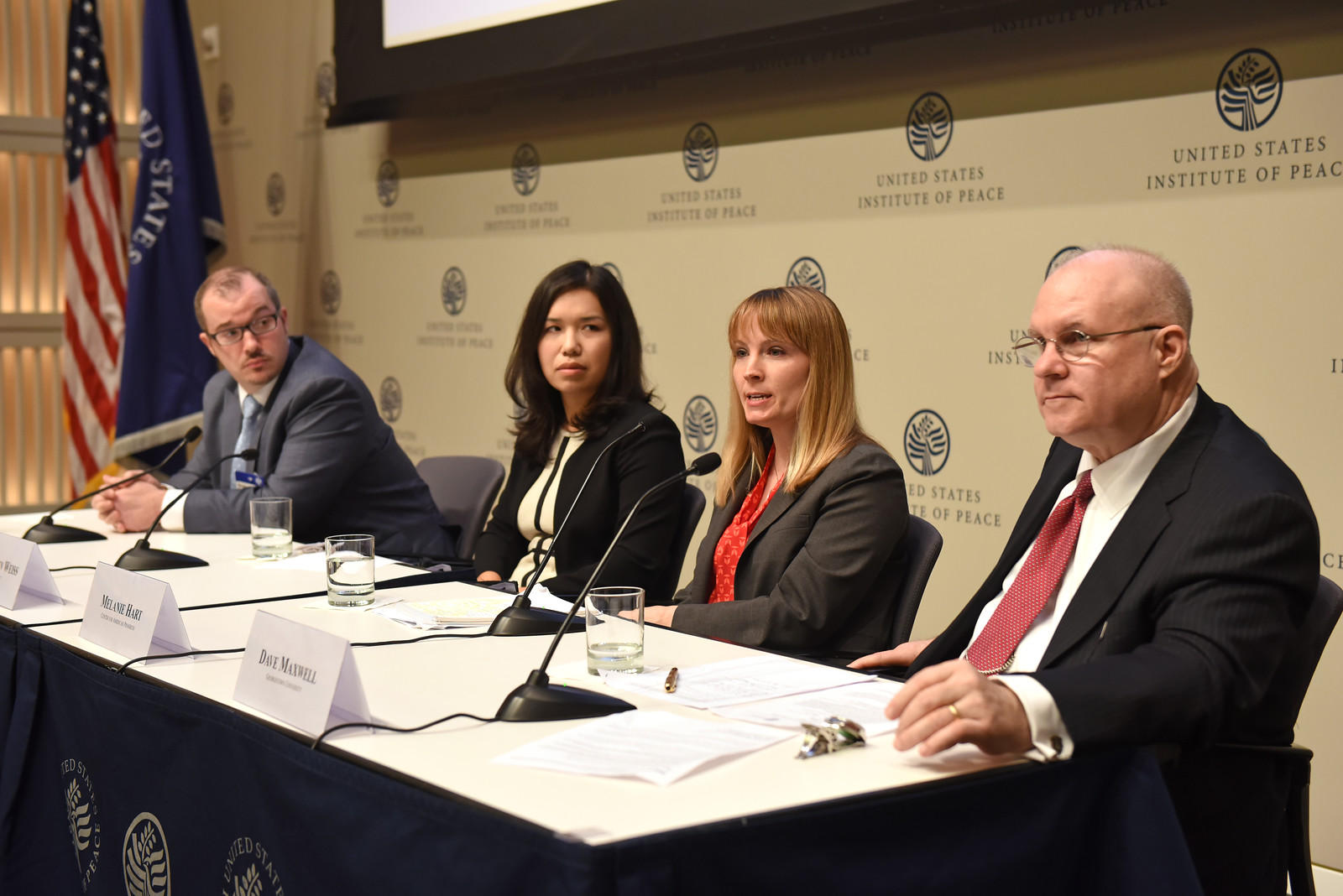Domestic Dimensions of China's Foreign Policy
How Internal Dynamics Shape China's Actions Abroad
Read the Event CoverageNo country weighs more heavily on America's economy, cybersecurity and strategic posture in Asia than China. China's foreign policies are being shaped by changes within the country that can be hard to measure and evaluate. USIP and Georgetown University gathered a dozen experts for a daylong assessment of how China's internal economic, political and security pressures are influencing policies critical to the United States and peace and security around the world.

China's international behavior and its domestic agenda are closely intertwined across a wide range of policy issues. For example, China's energy needs have driven many of its overseas investments. The government's concerns about the ethnic autonomy or separatist movements in Tibet and Xinjiang, respectively, shape its strategy toward South Asia and Muslim countries. President Xi Jinping's attempts to consolidate power domestically affect his international priorities and are changing the role of China's army , especially through the anti-corruption campaign. The slowing of China's economy could cause Chinese leaders to be more cooperative and cautious in foreign policy, or more assertive to drum up nationalism. Finally, China's activities in cyberspace are largely shaped by the drive for domestic innovation and the need to monitor and censor online activities.
China's domestic situation thus influences its role on the international stage and directly impacts security in regions around the globe. For Americans, it moves stock indexes, shapes markets for companies, and influences discussion of the United States' strategic posture.
Continue the conversation on Twitter with #ChinaGUUSIP, @GeorgetownCSS, and @USIP.
9:00-9:30 Registration
9:30-9:45 Welcome
- Thomas Banchoff, Vice President for Global Engagement, Georgetown University
- Ambassador William B. Taylor, Executive Vice President, U.S. Institute of Peace
9:45-11:00 The Domestic Political and Economic Situation
This panel will address how the domestic political and economic situation is shaping Chinese foreign and security policy. As China modernizes, how are the expectations of the people changing and what are the ways this may impact Chinese external behavior? How does the economic slowdown change China’s strategic priorities? How have recent economic and political developments affected China’s attitudes toward “non-interference” overseas? How does the economic climate shape the relationship between the people and Party? What are the sources of Chinese nationalism and does it constrain or empower China internationally? How are concerns about separatist movements, as well as the new threat of ISIS, shaping China’s strategy toward South Asia and Muslim countries? How do the demands of domestic censorship shape China’s approach to cyber internationally?
- Scott Harold, Full Political Scientist and Associate Director, Center for Asia-Pacific Policy, RAND Corporation
- Jessica Chen Weiss, Associate Professor of Government, Cornell University
- Melanie Hart, Director, China Policy, Center for American Progress
- Moderator: Jennifer Staats, Director for China Programs, United States Institute of Peace
11:00-11:15 Coffee Break
11:15-12:30 Contentious Elite Politics
This panel will address the leadership characteristics of Xi Jinping, the degree of factionalism at the highest levels of the Party, and the causes and effects of the anti-corruption campaign. How do elite politics shape Xi’s approach to foreign and security policy? Are certain groups empowered at the expense of others? What are the broader repercussions of his anti-corruption campaign? Are there any important trends in the Party’s relationship with the state that have implications for China’s role on the world stage? Are there voices at the top that want to see China play a more active role in shaping peace and conflict dynamics in other countries and regions?
Chris Johnson, Senior Advisor and Freeman Chair in China Studies, CSIS
Richard McGregor, Public Policy Fellow, Wilson Center
David Shambaugh, Professor of Political Science and International Affairs, George Washington University
Moderator: Kristen Looney, Assistant Professor, Georgetown University
12:30-14:15 Networking Luncheon
14:30-15:45 The Changing Role of the PLA
This panel will address the PLA’s relationship with the Party and the people. As the military professionalizes, is it developing an independent voice and influence in policy making? Xi has prioritized soft modernization – the improvement of recruitment, retention, training and force development. How do changing societal factors impact the desire to improvement the quality of the force? What is the public perception of PLA and how does the relationship between society and the military impact Chinese external security behavior? How has the effort to modernize the PLA affected China’s participation in peacekeeping missions and other training activities? Are there elements of the PLA that want to see China take a more active role in influencing peace and security dynamics in other countries? What steps might the PLA take to protect China’s overseas interests?
- Phillip Saunders, Distinguished Research Fellow, National Defense University
- Jacqueline Deal, President, Long-Term Strategy Group
- Kristen Gunness Chief Executive Officer, Vantage Point Asia LLC
- Moderator: Oriana Skylar Mastro, Assistant Professor, Georgetown University
15:45-16:15 Concluding Remarks: Alternative Futures?
- Oriana Skylar Mastro, Assistant Professor, Georgetown University
- David Maxwell, Associate Director of the Security Studies Program, Georgetown University
- Jennifer Staats, Director for China Programs, United States Institute of Peace



